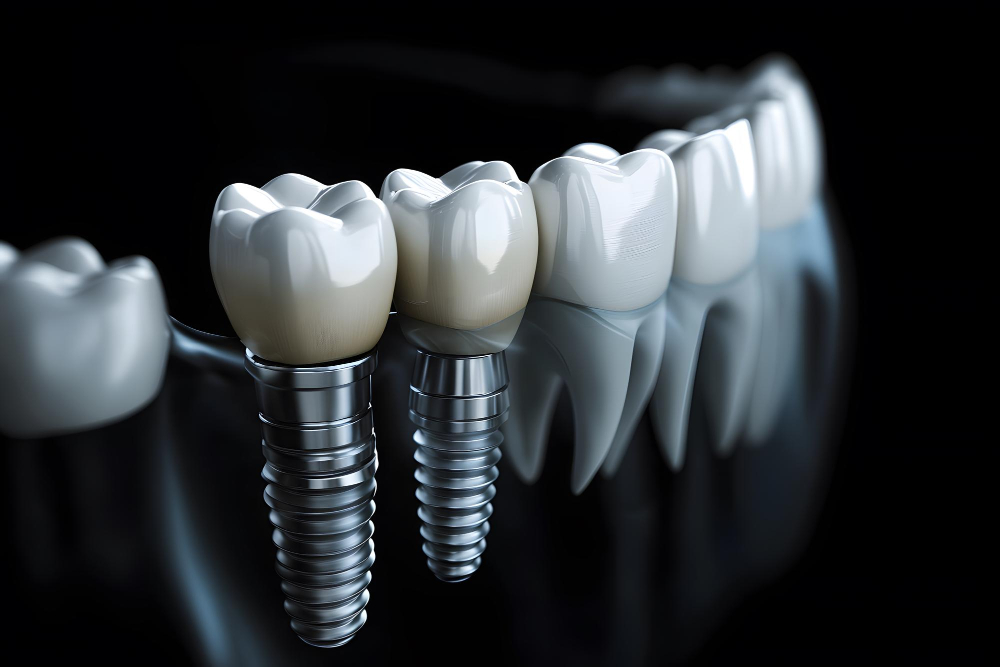A beautiful, confident smile is often associated with good health and success. However, discolored, chipped, or misaligned teeth can make you feel self-conscious. Thankfully, veneers offer a quick and effective way to transform your smile. But with two primary options available—composite vs. porcelain veneers—choosing the right one can be overwhelming.
At Roots Dental Care, located in Hasbiguda and Jubilee Hills, we believe in providing personalized dental solutions tailored to your needs. In this guide, we’ll break down the differences, benefits, and drawbacks of composite and porcelain veneers to help you make an informed decision.
Understanding Composite Veneers
What Are Composite Veneers?
Composite veneers are made from a tooth-colored resin material that is applied directly to the surface of the teeth. This material is sculpted and shaped by a dentist to achieve a natural-looking smile. Composite veneers are a minimally invasive and cost-effective way to improve the appearance of your teeth.
The Composite Veneer Process
The process of getting composite veneers is quick and efficient, often completed in a single visit. Here’s what to expect:
- Consultation: Your dentist will evaluate your teeth, discuss your esthetic goals, and determine if composite veneers are suitable for you.
- Preparation: The surface of the tooth may be lightly etched to improve adhesion, but no significant enamel removal is required.
- Application: The composite resin is carefully applied in layers, shaped, and sculpted to match the size, shape, and color of your natural teeth.
- Hardening: A special curing light is used to harden the resin quickly.
- Polishing: Once the veneer is set, your dentist will polish it to create a smooth, natural-looking finish.
Composite veneers provide immediate results, making them a great option for those looking for a same-day smile enhancement.
Exploring Porcelain Veneers
What Are Porcelain Veneers?
Porcelain veneers are thin, custom-made ceramic shells that cover the front surface of teeth. Unlike composite veneers, porcelain veneers are crafted in a dental lab and designed to match the natural color and translucency of real teeth. They provide a long-lasting, durable, and stain-resistant solution for cosmetic imperfections.
The Porcelain Veneer Process
Getting porcelain veneers requires multiple visits but offers a more permanent and highly aesthetic solution. The process includes:
- Consultation: Your dentist will assess your teeth and discuss your desired outcome.
- Preparation: A thin layer of enamel (0.5mm to 1mm) is removed to accommodate the veneer. This step ensures a proper fit and natural look.
- Impressions: Molds of your teeth are taken and sent to a dental lab where your custom veneers are fabricated.
- Temporary Veneers: While your permanent veneers are being crafted, temporary veneers may be placed to protect your teeth.
- Bonding: Once your porcelain veneers are ready, they are carefully bonded to your teeth using a strong dental adhesive, ensuring a long-lasting hold.
Porcelain veneers are an ideal choice for patients looking for a highly aesthetic, long-lasting smile makeover.
Composite vs. Porcelain Veneers: Pros and Cons
Pros and Cons of Composite Veneers
✅ Advantages:
✔ More Affordable: Composite veneers are significantly less expensive than porcelain veneers, making them a great option for those on a budget.
✔ Quick Application: The entire process can often be completed in a single visit, providing immediate results.
✔ Less Invasive & Reversible: Unlike porcelain veneers, composite veneers require minimal enamel removal, making them a reversible option.
❌ Disadvantages:
✖ Less Durable: Composite resin is more prone to chipping and staining than porcelain.
✖ Shorter Lifespan: Composite veneers last between 3–10 years and may require more frequent replacements or repairs.
Pros and Cons of Porcelain Veneers
✅ Advantages:
✔ Natural Appearance: Porcelain closely mimics the translucency and shine of natural teeth, creating a flawless and aesthetic smile.
✔ Stain-Resistant: Unlike composite veneers, porcelain is resistant to stains from coffee, tea, wine, and tobacco.
✔ Durable & Long-Lasting: Porcelain veneers can last 10–15 years or longer with proper care.
❌ Disadvantages:
✖ Higher Cost: Porcelain veneers are more expensive than composite veneers due to the custom fabrication process.
✖ Irreversible Procedure: Enamel removal is required, making it a permanent decision.
✖ Longer Treatment Time: The procedure requires multiple visits to complete.
Who Is the Ideal Candidate?
Composite Veneers are best suited for:
✔ Individuals who want a quick, affordable solution for minor imperfections like small chips, slight gaps, or mild discoloration.
✔ Patients looking for a non-invasive and reversible option.
Porcelain Veneers are ideal for:
✔ Those with severe discoloration, worn teeth, misalignment, or multiple cosmetic concerns.
✔ Patients who want a long-lasting, stain-resistant, and high-quality solution.
Cost Comparison
💰 Composite Veneers: $300–$600 per tooth
💰 Porcelain Veneers: $800–$2,500 per tooth (varies based on complexity and material quality)
While composite veneers are more affordable upfront, porcelain veneers offer greater durability and long-term value, reducing the need for frequent replacements.
Composite vs. Porcelain Veneers: Making the Right Choice
Choosing between composite vs. porcelain veneers depends on your budget, aesthetic goals, and long-term expectations. A consultation with Roots Dental Care in Hasbiguda and Jubilee Hills can help determine the best option for your unique needs.
Questions to Ask Yourself:
- Do I need a quick, budget-friendly solution? → Choose composite veneers
- Am I looking for a durable, long-term solution? → Choose porcelain veneers
- Do I want a completely reversible option? → Choose composite veneers
- Do I want a natural, stain-resistant smile? → Choose porcelain veneers
Conclusion
Both composite and porcelain veneers offer an excellent way to enhance your smile. If you’re looking for a cost-effective, quick-fix solution, composite veneers may be the right choice. However, if you prefer a long-lasting, stain-resistant, and highly aesthetic option, porcelain veneers are worth the investment.
At Roots Dental Care in Hasbiguda and Jubilee Hills, we specialize in cosmetic dentistry and can help you achieve the smile of your dreams. Book a consultation today and take the first step toward your perfect smile!


